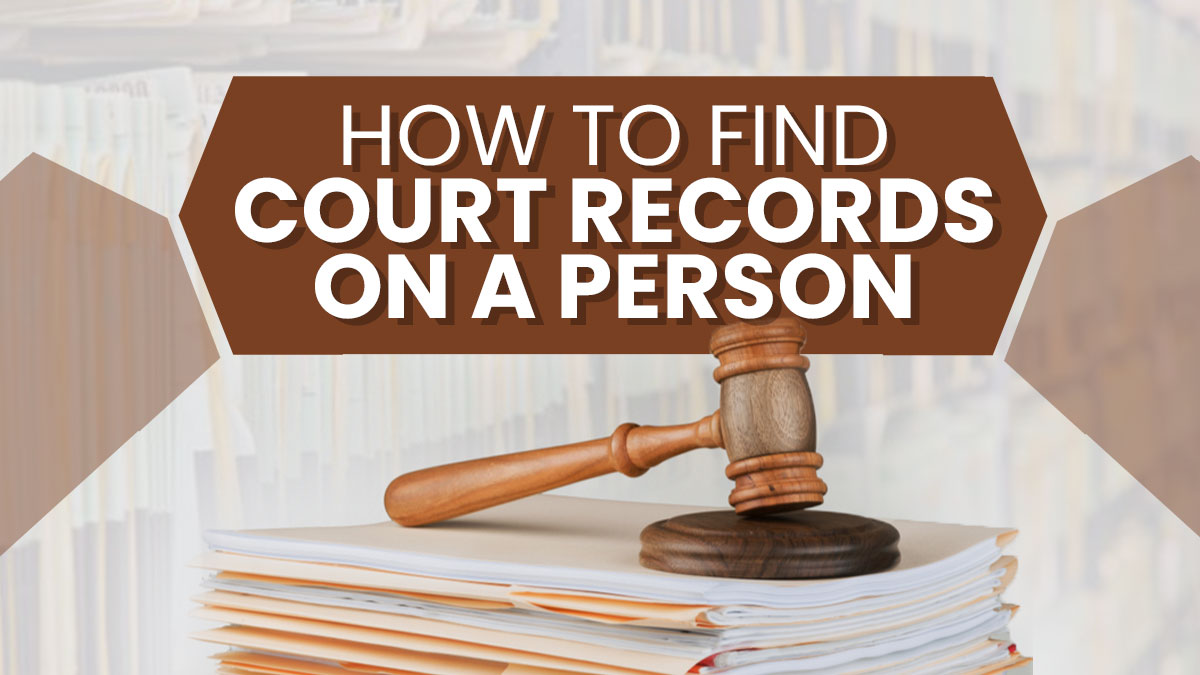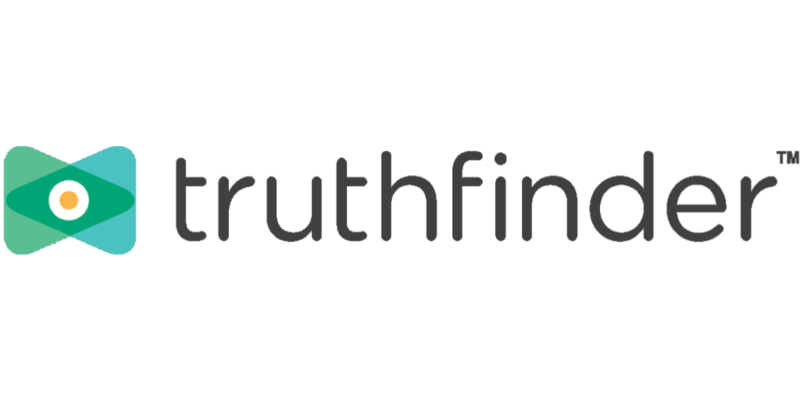Perhaps you have wondered about a person’s previous legal problems or appearances in court. It’s possible that you’re looking to form a new friendship or romantic relationship but would like reassurance that the individual in question does not have a criminal record.
In today’s digital age, it’s now simpler to obtain court records on a person with the aid of background check tools that can offer thorough reports on an individual’s legal past.
This guide will provide you with information on how to obtain court records related to an individual, what kind of information can be found in these records, and how background check tools can help in this process.
Whether you’re a concerned citizen, a researcher, or simply curious, this guide will assist you in discovering the legal history of any person you wish to investigate.
>> Find Court Records on a Person With BeenVerified >>
How to Find Court Records on a Person?
If you want to get access to someone’s court records, you need to collect their personal details, determine the proper jurisdiction, look for online resources such as PACER or state or local court websites, and go to the courthouse if required.
It’s important to carefully look at the records and use the information legally and responsibly.
People can use high-quality background check sites like BeenVerified, PeopleLooker, TruthFinder, or Intelius to find court records on other people. These services offer efficient and effective results, saving you time and money.
Importance of Court Records in Background Checks
When performing a background check, it’s important to review court records as they offer a comprehensive overview of a person’s legal past. These papers cover various situations, such as criminal charges, civil lawsuits, family court cases, and bankruptcies.
You can learn a lot about a person’s personality, dependability, and honesty by looking at their court records.
In general, court documents are crucial for making well-informed choices and reducing potential hazards.
>> Find Court Records Now With BeenVerified >>
Purpose of Finding Court Records on a Person
There are several possible reasons for an individual to search for court records related to another person, including:
Employment screening: Many companies do background checks on job applicants to find out about their legal history and make sure they’re honest and professional. It’s crucial to remember that only services approved by the FCRA are permissible for screening potential employees.
Tenant Screening: To assess the potential risks associated with renting their property to a tenant, landlords may search court records to review any previous evictions or conflicts with previous landlords. However, it’s essential to keep in mind that only screening services that have been approved by the FCRA can be utilized for this purpose.
Personal Relationships: Before embarking on a new personal relationship, it’s crucial to stay vigilant and note any warning signs that may jeopardize your safety or health. When you look at court records, you can learn a lot about a person’s past, which can help you make better decisions.
Legal Proceedings: Sometimes, it’s important to look for court documents about a person, especially if there’s a lawsuit or a fight over child custody that’s still going on. Such records can furnish critical details that can help strengthen your argument.
Self-Evaluation: It’s recommended that you check your court records to make sure that the information in public databases is correct. This step is especially important when you’re looking for a job or a place to live because any wrong information could hurt your chances.
>> Find Court Records Now With BeenVerified >>
Understanding Court Records
Types of Court Records
When researching a person’s legal background, it’s possible to encounter various court records. These records can include a range of different types, with some of the most typical examples being:
Criminal Court Records: These papers have information about a person’s accusations of breaking the law, guilty verdicts, and punishments. They include information about serious crimes, minor offenses, and other law violations.
Civil Court Records: Civil records are used to record legal disputes that do not involve criminal charges. These disputes may include lawsuits, disagreements over contracts, or claims related to personal injury.
Family Court Records: The documents in question pertain to issues concerning families, including but not limited to divorce proceedings, arrangements for children’s custody and support, as well as instances of adoption.
Bankruptcy Court Records: Bankruptcy records contain details about an individual’s financial inability to pay their debts and the legal actions taken to settle their financial obligations.
Public Access to Court Records
Most court records fall under the category of public information and are accessible to everyone. People often get court records by going to courthouses in person, using online databases, or going to the websites of state and local courts.
Privacy Concerns & Limitations
Even though court records are usually open to the public, there are times when they must be kept private to protect someone’s privacy. For instance, some records, like those about juvenile cases, confidential documents, or cases with sensitive issues, may be hard to get to or require special permission to see.
>> Search Court Records Fast With BeenVerified >>
Top 3 Background Check Services
Numerous background check tools are presently accessible on the market, with some of the most well-known ones being identified below. But it’s important to remember that these tools are not approved by the FCRA and can’t be used for screening employees or tenants or anything else that requires following the FCRA.
BeenVerified
BeenVerified is a popular online tool that lets people look up people’s court records and do background checks on them. The platform uses a number of public records databases to gather details about criminal histories, lawsuits, and other court-related matters.
The search for court records on an individual is made easier and more efficient with the use of BeenVerified. This platform offers a user-friendly interface and detailed reports to streamline the search process. It also has a mobile app that lets people search easily while they’re on the go.
TruthFinder
TruthFinder is a well-known tool for conducting background checks that collect information from several public record sources, such as court records. It offers detailed reports on people that cover a wide range of information, including criminal records, civil judgments, bankruptcies, and other relevant data.
TruthFinder is an essential tool for individuals searching for court records of people. It’s a large database and easy-to-use interface that makes it easy for users to find the information they need quickly.
TruthFinder also makes sure that its records are always up-to-date so that its users always get the most recent results.
Intelius
The background check solution called Intelius is a robust tool that helps individuals search for court records of someone by collecting data from different public record sources. It gives detailed reports with information about criminal records, civil cases, and other things that have to do with the court.
Intelius is an important tool for finding someone’s court records because it has a large database and an easy-to-use interface that makes it easy to find the information you need. Intelius also shows its commitment to privacy and security by offering services to protect people’s identities.
To locate court records on an individual, it’s crucial to utilize the best background check tools available. These tools offer simple access to an abundance of data from different public records sources, making them indispensable.
By using these tools, people can not only save time and energy when looking for court records, but they can also get accurate and up-to-date information that will help them make smart decisions.
Steps to Finding Court Records
The following are the necessary actions to locate an individual’s court records:
-
Gather Necessary Information
- Full Name of the Person: You need to gather the individual’s full legal name, which must include their middle name(s) or initials
- Date of Birth: To narrow down search results and confirm a person’s identity, it’s necessary to gather their date of birth
- Social Security Number (If Available): Having the individual’s Social Security number at your disposal can aid in narrowing down and enhancing your search
- Previous Addresses: To determine the correct jurisdiction for your search, it’s important to gather a record of past addresses
-
Determine the Jurisdiction
- Federal, State, or Local Courts: It’s important to know the court system in which the case was dealt with, as the way records are stored varies based on the jurisdiction
- The Geographic Location of the Case: To limit your search, it’s important to pinpoint the exact place where the incident occurred
-
Access Court Records Online
- PACER (For Federal Court Records): To search for federal court records, one can utilize the Public Access to Court Electronic Records (PACER) system
- State and Local Court Websites: To gain access to online records, one must visit the official websites of state and local courts
- Third-Party Search Engines: For a complete search, make use of third-party search engines which gather court records from different sources
-
Visit the Courthouse in Person
- Locate the Appropriate Court Clerk’s Office: To locate the court where the case was filed, it’s important to visit the clerk’s office of that particular court and gather all the necessary information
- Request Assistance in Finding Records: If you’re looking for records, court staff can assist you in finding them and may charge a small fee for their services
- Fees for Physical Copies of Records: It’s important to keep in mind that there may be charges for obtaining hard copies of legal papers from the court
>> Search Court Records Fast With BeenVerified >>
Analyzing Court Records
To examine court records, the following methods can be used:
Verifying the Identity of the Person in Question
When making sure court records belong to the right person, it’s important to check personal information like full name, date of birth, Social Security number (if available), and past addresses to make sure everything is correct.
Understanding the Charges or Case Details
To fully understand a legal matter, it’s important to look closely at the charges or case details, including criminal charges, civil disputes, family court issues, or bankruptcy petitions.
Reviewing the Outcome of the Case
It’s important to examine the outcome of the case, which may include convictions, acquittals, dismissals, settlements, or judgments, in order to gain essential context for evaluating the person’s history.
Identifying Any Potential Red Flags
It’s important to pay attention to any problems or patterns that keep happening, like a history of doing illegal things, getting sued a lot, or having trouble with money repeatedly. These warning signs can assist you in making informed decisions.
>> Find Court Records Now With BeenVerified >>
Use of Court Records in Background Checks
Legal Considerations & the Fair Credit Reporting Act (FCRA)
It’s important to keep in mind the legal obligations outlined in the Fair Credit Reporting Act (FCRA) when utilizing court records for the purpose of conducting background checks.
This federal law regulates the utilization of consumer reports, which include court records, in relation to employment and housing decisions. The FCRA says that the person being investigated must give permission and that certain rules must be followed when using the information.
Responsibilities of Employers & Landlords
Employers and landlords are required by the FCRA and other laws to do background checks on their employees and tenants.
This means sharing the information in the right way, getting permission, and giving the person being investigated a chance to dispute any wrong information found in their legal records.
Rights of the Person Being Investigated
The FCRA and other privacy laws protect the particular rights of people whose backgrounds are under investigation. They have the right to know about the background check, permit it, and dispute any wrong information in their legal records.
In case any unfavorable verdict is made based on their legal records, they have the right to be notified and given a copy of the report, along with instructions on how to dispute any inaccuracies.
Conclusion
To make well-informed decisions about people in different areas of life, it’s vital to conduct comprehensive research on court records. In this regard, background check tools are very important, as they simplify the process and guarantee accuracy and effectiveness.
During investigations, it’s important to find a balance between people’s need for information and their right to privacy in order to protect their rights and follow the law. By responsibly using court records and taking into account the specifics and ramifications of each case, decision-making can be fair and impartial.
In the end, using tools for background checks can make the process easier and give people the power to make well-informed decisions that reduce risks and improve safety and security.
>> Find Court Records on a Person With BeenVerified >>
DISCLAIMER: You may not use the non-FCRA approved services mentioned in this article or the information they provide to make decisions about consumer credit, employment, insurance, tenant screening, or any other purpose that would require FCRA compliance. These services don’t provide consumer reports and are not consumer reporting agencies. (These terms have special meanings under the Fair Credit Reporting Act, 15 USC 1681 et seq., (“FCRA”), which are incorporated herein by reference.)
The information available on our website may not be 100% accurate, complete, or up to date, so do not use it as a substitute for your own due diligence, especially if you have concerns about a person’s criminal history. The services we mention do not make any representation or warranty about the accuracy of the information available through our website or about the character or integrity of the person about whom you inquire. For more information, please review each service’s Terms of Use.









Leave a Reply